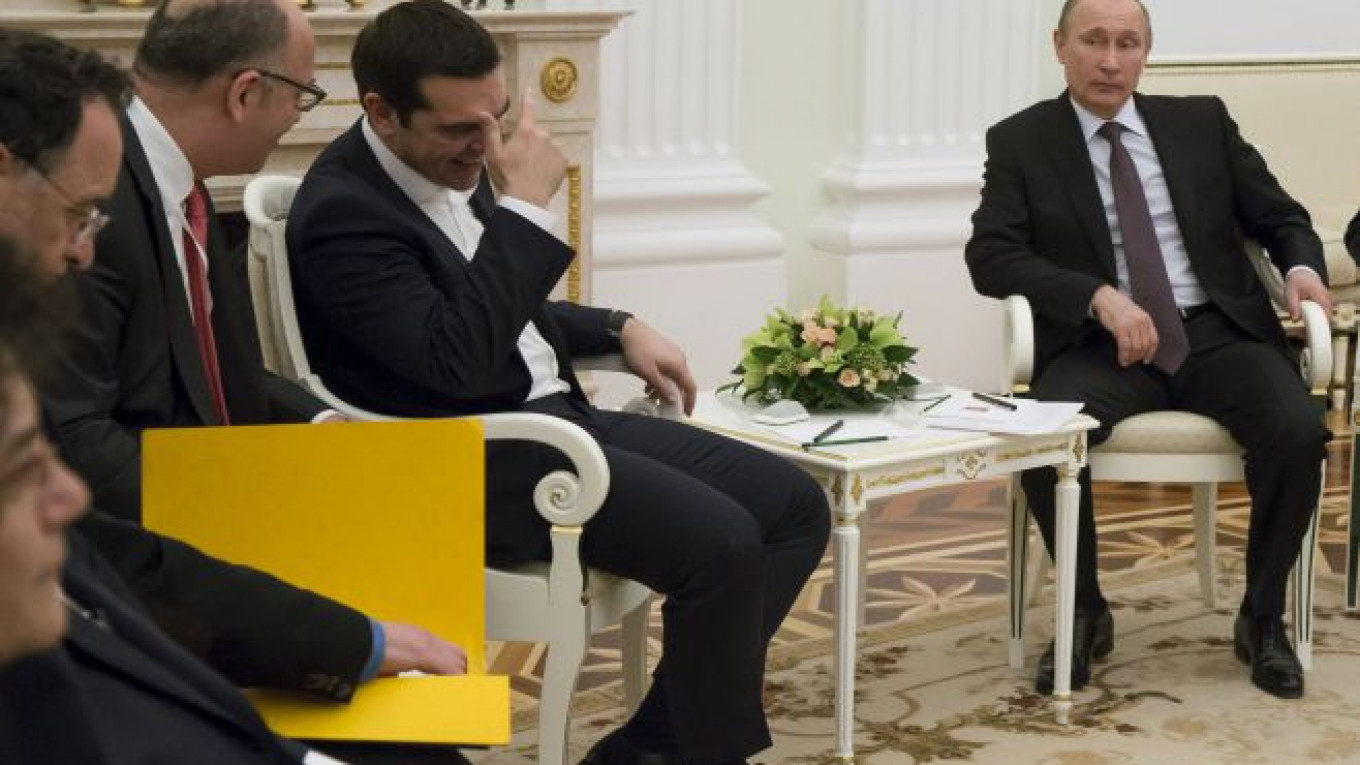Russia is considering soon giving Greece funds based on future profits it could earn from shipping Russian gas to Europe as part of a pipeline extension, two Greek government sources said Wednesday.
The extension to the Turkish Stream pipeline, which would take Russian gas from Turkey to Europe via Greece but has yet to be finalized, might also mean Athens would pay less for Russian gas. But Moscow has yet to decide on any discount, the sources said.
Greek Prime Minister Alexis Tsipras voiced interest in the project in talks with Russian President Vladimir Putin in Moscow on Wednesday.
Tsipras' government, at loggerheads with its euro zone and International Monetary Fund creditors, risks running out of money within weeks unless it can reach a new cash-for-reform deal.
One of the Greek officials, both of whom spoke on condition of anonymity, said Greece would pay back the Russian prepayment after the pipeline started operating, without specifying a sum.
The other source estimated Greece could earn around 500 million euros ($540 million) a year in profits from participating in the Turkish Stream extension, adding that the prepayment sum was up to Russia.
Greece hopes its extension to Turkish Stream will start operating in 2019 and is seeking a discount of around 10 percent on Russian gas supplies, the source said.
Putin told a news conference with Tsipras that the two leaders had reached no concrete agreements on Greece's participation in Turkish Stream, which would depended on the government in Athens.
The first official said the pipeline project would involve private financing and would comply with European Union rules.
Tsipras' visit to Moscow caused unease among some EU partners that Greece could break ranks over economic sanctions on Russia to secure aid or use the trip to pressure its EU allies to release financing.
A Message from The Moscow Times:
Dear readers,
We are facing unprecedented challenges. Russia's Prosecutor General's Office has designated The Moscow Times as an "undesirable" organization, criminalizing our work and putting our staff at risk of prosecution. This follows our earlier unjust labeling as a "foreign agent."
These actions are direct attempts to silence independent journalism in Russia. The authorities claim our work "discredits the decisions of the Russian leadership." We see things differently: we strive to provide accurate, unbiased reporting on Russia.
We, the journalists of The Moscow Times, refuse to be silenced. But to continue our work, we need your help.
Your support, no matter how small, makes a world of difference. If you can, please support us monthly starting from just $2. It's quick to set up, and every contribution makes a significant impact.
By supporting The Moscow Times, you're defending open, independent journalism in the face of repression. Thank you for standing with us.
Remind me later.


